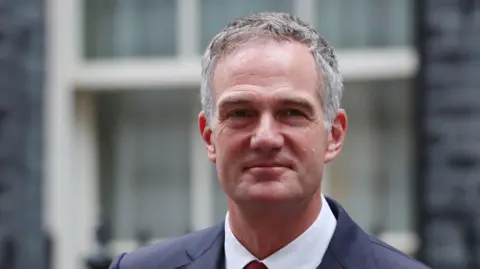**Staff Concerns Over Turing AI Institute’s Future**
In a troubling development, employees of the UK’s Alan Turing Institute, which serves as the country’s leading center for artificial intelligence (AI) research, have expressed concerns about the charity’s viability due to potential funding cuts. The recent actions of Technology Secretary Peter Kyle, who has indicated he may withdraw future funding, have heightened fears among staff of a possible collapse of this vital institution.
The staff’s worries were formally transmitted through a whistleblowing complaint lodged with the Charity Commission, wherein they outlined a series of “serious and escalating concerns.” This complaint, which has come to light through BBC reporting, alleges that the institute’s leadership is mismanaging public funds, allowing for a detrimental internal culture, and failing to adhere to its declared mission.
In response to the situation, a spokesperson from the government reaffirmed Kyle’s commitment to ensuring the Turing Institute “delivers real value for money for taxpayers.” This assertion indicates an expectation of accountability from the Institute, which has enjoyed significant public funding.
The Department for Science, Innovation & Technology (DSIT) remarked that the Turing Institute is an independent organization, currently engaging in a restructuring process to recalibrate its focus under the so-called Turing 2.0 strategy. They assert that the proposed changes aim to position the Institute strategically in safeguarding national security—an area of increasing governmental focus.
Kyle’s directive has included a push for the Turing Institute to pivot towards defense-related research. He warned that funding could be reduced or entirely withdrawn if the organization fails to meet these new expectations. This proposed shift represents a significant change in direction for the institute, especially considering the £100 million grant provided by the previous Conservative government a year prior.
Founded in 2015, the Alan Turing Institute was established as a national hub for AI, promoting research in areas such as environmental sustainability, health, and national security. However, amidst this restructuring, distress among staff has grown, particularly since the whistleblowing complaint claimed the government’s funding may now be in jeopardy, leading to fears that the Institute could face imminent closure.
In a recent clarification, the Turing Institute has indicated that it is currently engaged in major organizational changes intended to fulfill its responsibilities as a national entity focused on data science and AI. Spokespeople stated that the Institute aims to target pressing societal challenges while also enhancing work in national security and defense.
Despite the staff’s claims, the Turing Institute stated that they had not received official notification of the whistleblower complaint nor had they reviewed the aspects highlighted by their concerned employees. Meanwhile, the Charity Commission confirmed it is in the early stages of assessing the issues raised regarding the Turing Institute to determine whether any regulatory action is warranted.
**Internal Strife and Leadership Issues**
The whistleblower complaint was submitted anonymously due to fears of retaliation among the staff members at the Institute. This document outlined eight issues of concern, emphasizing that governance instability, a lack of transparency, and ongoing delivery failures have led to serious worries among the Institute’s funders.
The accusations include claims that the Turing Institute’s governing body has overseen a culture defined by fear and defensiveness, contributing to widespread dissatisfaction among employees. The complaints were presented to the leadership team, including Chairman Doug Gurr, but staff have alleged that no substantial actions were taken in response.
As the UK’s national hub for data science and AI, the Alan Turing Institute has encountered instability, particularly with recent plans to cut numerous positions and discontinue various research initiatives. A letter signed by 93 employees at the end of 2024 reflected a significant lack of confidence in the current leadership.
In a broader discourse on its direction, newly appointed Chief Executive Jean Innes has publicly recognized the need for the Turing Institute to modernize and revamp its focus towards AI projects. Recent activities included investigating the use of artificial intelligence in weather forecasting and understanding how children are increasingly interacting with these technologies.
Concerns regarding the Institute’s direction have arisen not just from within but also among external collaborators, suggesting a potential reputational crisis. The AI sector has been identified as critical to the UK government’s strategies for economic growth, underlining the importance of ongoing research and development in this rapidly changing field.
In conclusion, the tensions within the Turing Institute reflect larger questions about the future and governance of publicly funded research initiatives. The outcome of the current complaints and government challenges may have lasting implications on how the Institute navigates its mission and affirms its role within the broader AI landscape.











